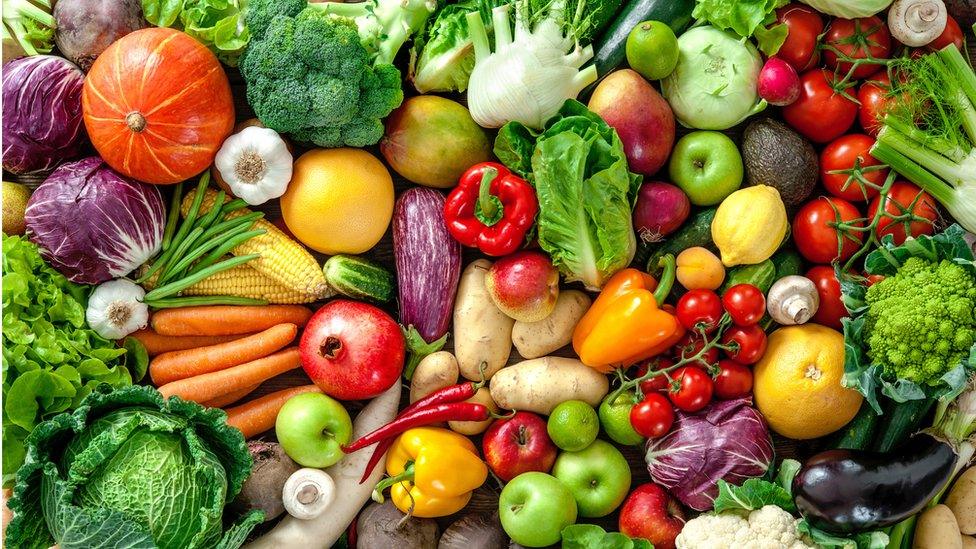Brexit is 'chance to grow Scots grocery sector'
- Published
- comments

Fresh products account for 40% of turnover in most convenience stores, says the Scottish Grocers Federation
The UK's departure from the European Union is an opportunity to grow Scotland's grocery sector, an industry group has said.
The Scottish Grocers Federation has advised members to buy in more local produce instead of getting it from EU countries, as Brexit approaches.
Meanwhile, federation chief executive Pete Cheema called for an extension to the 31 October leave date.
He said the industry needed "absolute clarity" on the terms of departure.
At the same time, the Scottish Grocers Federation said the sector was growing for the first time in three years, after a plan to modernise shops and a focus on higher profit margin goods such as food-to-go and vaping products.
4,973Number of convenience stores in Scotland
44,000Number employed in the sector
71%Percentage of independent stores
Mr Cheema told BBC Radio's Good Morning Scotland programme that Brexit uncertainty had raised concerns about a loss in industry growth.
He also said there was a limit to how much could be stockpiled, given that fresh products now made up 40% of turnover in most convenience stores.
"However, I think there's a real opportunity for Scottish retailers, Scottish wholesalers and the Scottish food service as well, to change their buying to Scottish products.
"We have certainly given advice to our members that is the route that they should take to maintain certainty of stock."

What are other businesses saying about Brexit in Scotland?

However, Mr Cheema also backed an extension to the Brexit date, adding: "Personally speaking I think there should be, until we get absolute clarity."
His comments came as a report from the Scottish Grocers Federation showed store owners had invested £64m in their businesses in the past year, while tobacco, e-cigarettes and alcohol accounted for the vast majority of sales.
Mr Cheema said his organisation had been "quietly manoeuvring" members into refitting their shops and cutting costs.
He said selling vaping products was more profitable than tobacco ones, and the introduction of minimum alcohol pricing had allowed smaller shops to compete with the big chains on an equal footing, because the policy had banned the sale of drink at a heavy discount or loss.

For the latest business news as it happens, follow BBC presenter Andrew Black's updates each weekday morning on BBC Radio Scotland's Good Morning Scotland programme between 0600 and 0900.